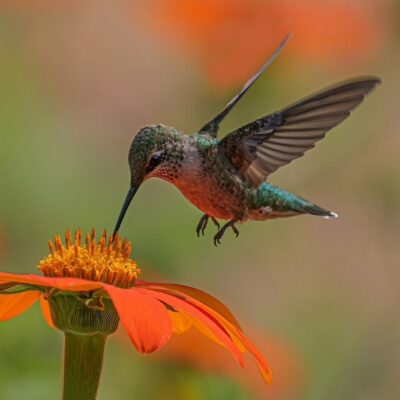By Jay Kibble & Ian Roesler
If opening my mind and heart to another way of thinking could cause the rush I felt at the edge of that pond, understanding and tolerance of different opinions could become a habit. It might even grow to become contagious, targeting infectious concepts.
~ “Hammer Test” by Renata Golden (River Teeth 24.2, Spring 2023)
When writing a personal essay, the world of the essay is you and your story, but sometimes we need to add research to our story to ground the reader in our experience; doing so also helps to ground the ethos of an essay. This makes the essay more meaningful and universal. Renata Golden does just that in her essay “Hammer Test,” published in Issue 24.2 of River Teeth.
Start with the first paragraph of the essay. Golden immediately grounds the essay in the scientific: “Imagine a spectrum of living creatures. At one end are viruses, bacteria…in the middle, find spiders, crabs…holding down the far end are humans—not because of their size or evolutionary superiority but because of their claim to a moral code.” From there, Golden jumps into the personal, the idea of a moral code, and goes on to consider the morality of killing living species. Where do we draw the line when it comes to who or what we are willing to kill?: “What do we lose when a species disappears? What do we suffer when we are the cause of that extinction?” There’s warmth here, in this blend of research and personal. There’s universality. There are unanswerable questions–all threads that are pulled through the entirety of the essay.
In contrast, the following paragraph is an example of straight research: “Chytridiomycosis is a disease caused by a parasitic fungus known as Batrachochytrium dendrobatidis, or Bd. It has infected most of the world’s estimated 6,000 amphibian species. In a paper published by the World Conservation Union (IUCN) in 2007…” Here, there are no “I” statements and the language is more scientific, using binomial nomenclature and introducing a source (the World Conservation Union). The first paragraph was about setting a scene, about offering an introspection to something grander, whereas this paragraph is about conveying necessary information to the reader.
In comparison, Golden provides us with plenty of warmth and personableness when invoking the research alongside the personal. Doing so leads us to deeper meaning and unanswerable questions for Golden, providing more trust in her. As she treks across these mountains with these scientists, marveling at the native frogs, Golden finds herself not only killing her first bullfrog, but also coming to realize that this existential war between leopard frog and bullfrog quite mimics our very human experience of polarization within society:
By virtue of a deeply visceral response, I had come down on the side of killing a member of one species so that two species could persist. In the battle between Ciricahua leopard frogs and American bullfrogs, the only available options are to kill American bullfrogs directly or kill Chiricahua leopard frogs indirectly. We are responsible by doing something and we’re responsible by doing nothing. Is this what it feels like to appreciate an opposing point of view—about extinction, or the value of the natural world and our role in it, or land use or politics or any other thing?…Can killing beget empathy? … If opening my mind and heart to another way of thinking could cause the rush I felt at the edge of that pond, understanding and tolerance of different opinions could become a habit. It might even grow to become contagious, targeting infectious concepts. The idea is exhilarating.
Note the rhetorical questions in the quote above. Can killing beget empathy? Are we responsible either way–in either doing something or doing nothing? What does it mean to “open [the] mind and heart to another way of thinking?” These are big questions Golden leaves the reader to ponder.
Given the situation, Golden must incorporate research into her essay; it not only provides context for the reader, but also justification, lest it come across simply as the wanton mass destruction of amphibians. In providing that context and justification, Golden leads us to ponder grander questions about our impact on nature and our responsibility to protect ecosystems and tolerate different points of view.
Writing personal essays that incorporate research can be rather tricky; there needs to be the right balance of the personal and the scientific to appeal to both heart and mind. Golden does this wonderfully through a seamless weaving of the narrative and the scientific.
Writing Exercises:
- Is there a larger, universal issue, such as climate change, that you’d like to write about? How can you make those issues personal? Brainstorm ways you can talk about universal issues through the personal essay, then write.
- Describe a specific time that profoundly changed your perspective (on humanity, nature, or?).
Jay Kibble (he/they) is a crocheter, taco connoisseur, and writer and editor. His nonfiction and poetry tends to be grounded in identity and place, particularly his Southern roots and neuroqueer identity, and can be found in a growing collection of places.
Ian Roesler lives in Azalia, IN. He graduated from Ball State University and his works have been published in SCAB.
Photo by Austin Santaniello on Unsplash



















